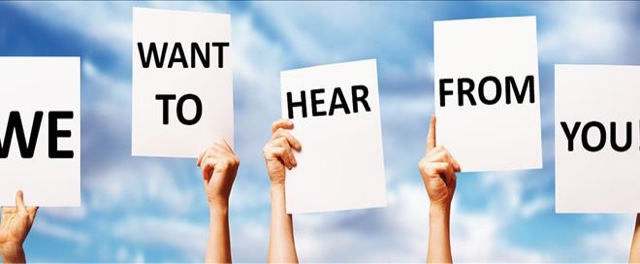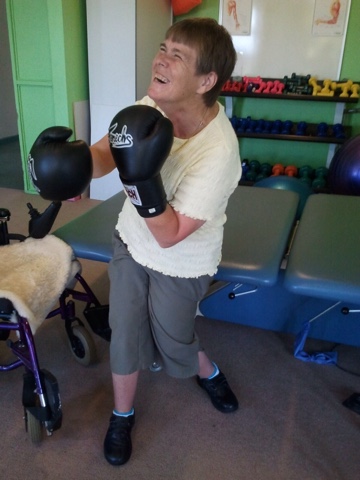A few weeks ago, newly qualified conductor Jalyss Zapf posted a list of 10 things CE has taught her. A brilliant list actually (I wish I had written it!), a list that made me proud to be a part of the same profession that Jalyss, still wet behind her little conductive ears, was writing about. A list that generated support and interest from heavy hitters in the CE international community - including one of my Australian participants who quickly rose to the challenge. Here is a link to Jalyss' post:
http://jjzapf.wordpress.com/2014/06/25/10-things-conductive-education-has-taught-me/
Jalyss ended her post by challenging others to add to that list. So Jalyss, I've been building this list for you and I've been adding to it over the past few weeks. I want to thank you as the exercise has reminded me that every day I learn something from CE and from my participants, and that part of the gift of conductive pedagogy is the embrace of an attitude of life long learning. I hope Jalyss, despite any challenges CE throws your way, that your life is enriched by this crazy profession over the years as much as mine as been and more.
CE has taught me:
1) the power of the conductive community - our classrooms bring people together in a microcosm of hope, support, positivity, genuine relationship and lifelong friendship. The rest of the world is not always as kind - but having the conductive community to fall back on is invaluable. Conductors are a part of this wonderful community - we are so lucky.
2) as cliche as it sounds, my attitude of gratitude has its foundations in my work
3) a sense of appreciation - no, more than appreciation, amazement of how incredibly different each person and each circumstance is, and an ability to celebrate and love people and their differences
4) the power of motivation and determination - when you understand the 'why' behind the 'what', the 'how' is just a matter of problem solving.
5) what resilience actually is - I don't know where it comes from or how to create it, but when it is there people seem to be able to withstand unbelievable hardship and difficulties with grace and stubborn strength that lets them stand up, rise up again and again. I hope that resilience is contagious and that when my turn comes I will rise again
6) how to have hard conversations, how to be honest and still positive, how to be present for people when times are tough, how to be there even if you aren't sure what to say or do and when really you would rather take your own awkwardness and hide
7) Jalyss said this but I'm going to say it again - it is wonderful and worthwhile to celebrate achievements large and small. Sometimes even tiny things mean a lot and make a huge difference in someone's quality of life, and tiny things add up to be huge things over time
8) it is always worth trying. You might not know what you can achieve with somebody, or where you should even start, but it is still worth trying. There is always something to learn and something to teach. You don't have to be an expert - just be willing to try, and to be honest about that process
9) to expect the unexpected, to learn to like surprises, to be able to adjust to a moment, to be flexible with your plans. Jalyss mentioned how to plan - she is right. Planning is not just about planning a session - planning is also about thinking about who might lose their balance, who might have a seizure, who might be affected by a humid afternoon or a cold morning; who might ask a question that needs answering in that moment and throws your whole plan out the window - surprise!
10) as Dr Maya Angelou said "I've learned that people will forget what you said, people will forget what you did, but people will never forget how you made them feel". Which is totally true - except in CE people seem to also remember what you say and do too...
11) that the relationships we build with people are powerful - and should be nourished. Yes, as a conductor we are professionals, but it is a profession that is very personal and the relationships build are hard to define or limit. We are a part of people's lives and they are a part of ours. There is sharing, trusting, there is love - sometimes over years and sometimes beyond the classroom setting. There are funerals and weddings and 21st birthday parties - the stuff of community, the stuff of life. That you can love so many people over so many years, that your capacity for conductive love is boundless
12) that you can't fix everyone or everything; that sometimes your best is not good enough, that sometimes someone won't want what you are offering, that sometimes it is just not meant to be
13) that in a conductive group there is an exchange of energy between you and the other conductors and assistants and all participants. Sometimes that energy will build in the group and lift everyone and you will end the day feeling fantastic. Other days you pour every bit of energy into keeping the rest of the group afloat and you will need to find a way to replenish your supply. Your energy is one of your most valuable conductive tools - but you can't guard it so you need to be able to refuel as needed
14) it's not all about me - in this profession and in life there is more to consider than what I want or how I feel. That the team is valuable - not just the staff team but that your conductive group is a team- and that team work makes it better. We don't do to or do for, we do with.
15) it is okay to make mistakes and to let other people make mistakes; that is is okay to say sorry;
16) that there is a balance between teaching people to take risks and teaching people to evaluate risk and make good decisions
17) patience - at least to be patient when I see value in what I am doing. I'm still working on being patient in general
18) that you will have ups and downs in your career, you may get tired or burn out. But if you are passionate about CE - if it is your calling - it gets under your skin, and into your blood, and into every cell of your being so that it becomes more than what you do, but who you are and how you do everything that you do.
So there you go Jalyss, and like you I extend the challenge to the conductive community - what has CE taught you?
 Many of the people attending this group have been coming fairly regularly since last September and all but one -- who is moving out of town -- have signed up for the next term which starts this Friday. Before we broke up at the end of the school term I surveyed them to find out what they were happy with, what parts of the program they enjoyed the most or found the most useful, what they didn't enjoy, what they struggled with, and what suggestions they have for future sessions. I gave them the choice of anonymity so that they could be honest and open in their response.
Many of the people attending this group have been coming fairly regularly since last September and all but one -- who is moving out of town -- have signed up for the next term which starts this Friday. Before we broke up at the end of the school term I surveyed them to find out what they were happy with, what parts of the program they enjoyed the most or found the most useful, what they didn't enjoy, what they struggled with, and what suggestions they have for future sessions. I gave them the choice of anonymity so that they could be honest and open in their response.
 I carefully listed out elements my carefully structured program for my clients to give feedback about in language that was clear and accessible (this is an incredibly intelligent bunch of people -- but that doesn't mean that they know or care what a task series or rhythmic intention is). I listed things like learning to change position and to stand up fluently, seated exercises, arm and shoulder exercises, fine manipulation and handwriting, speech and facial expressions, walking and balancing activities, memory and concentration work, stretching, and I included the pre-program greeting round and the post program morning tea amongst my activity list.
I carefully listed out elements my carefully structured program for my clients to give feedback about in language that was clear and accessible (this is an incredibly intelligent bunch of people -- but that doesn't mean that they know or care what a task series or rhythmic intention is). I listed things like learning to change position and to stand up fluently, seated exercises, arm and shoulder exercises, fine manipulation and handwriting, speech and facial expressions, walking and balancing activities, memory and concentration work, stretching, and I included the pre-program greeting round and the post program morning tea amongst my activity list.  Here are some of the responses:
Here are some of the responses:













